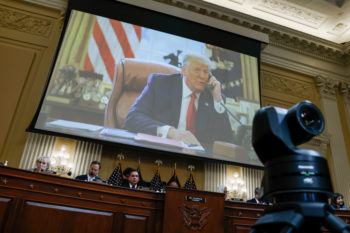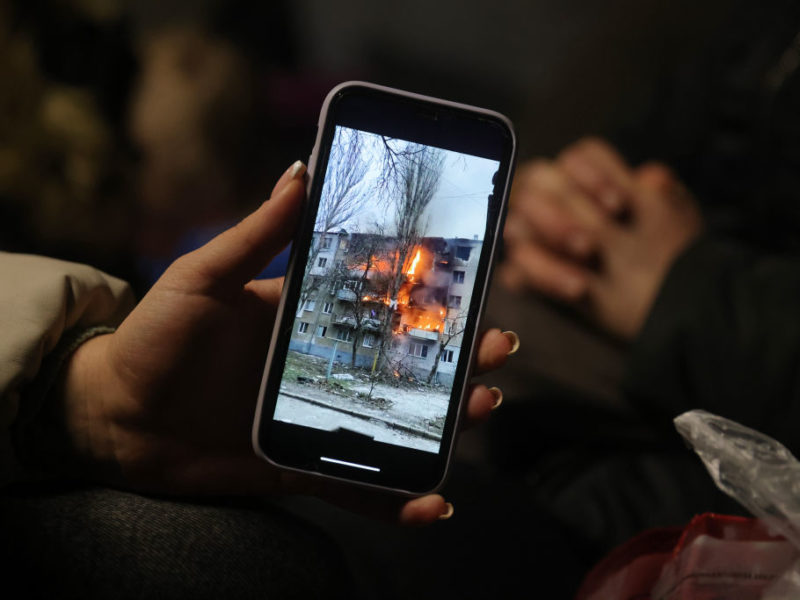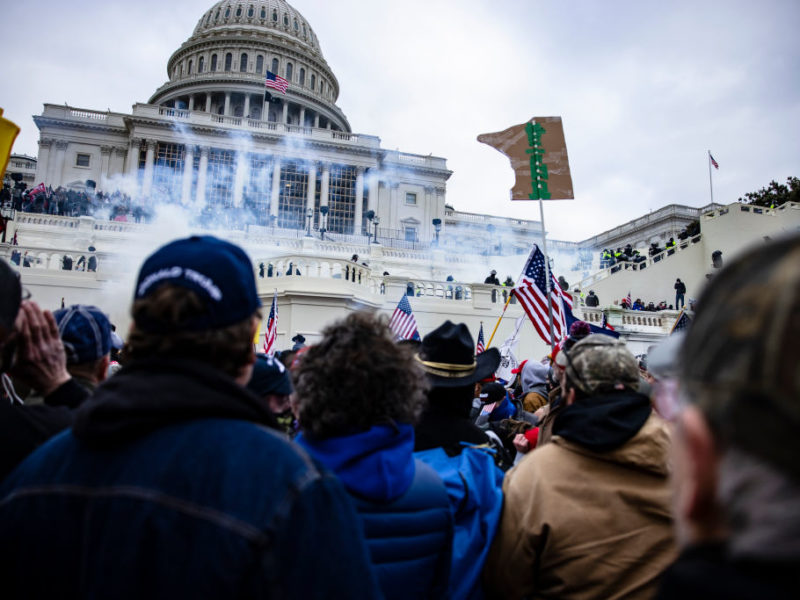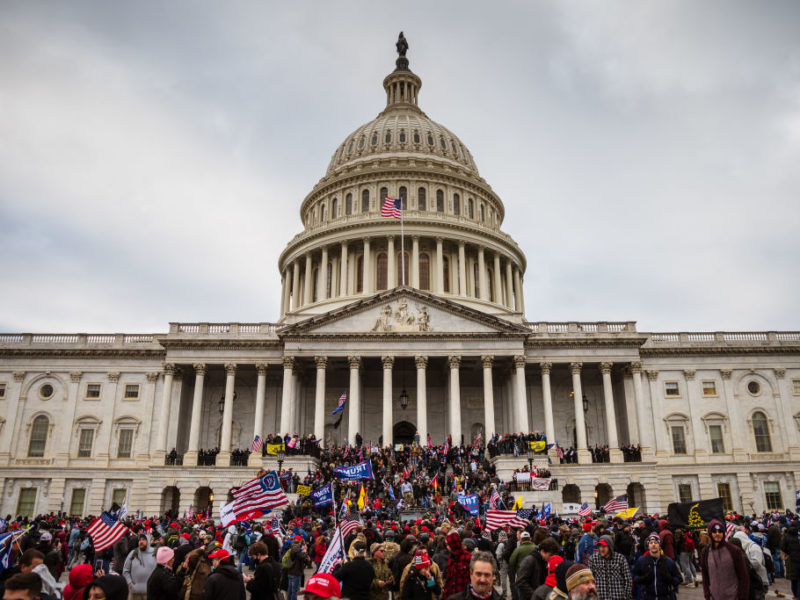Texas A&M Professor Provides Expert Statement To Jan. 6 Committee On Trump’s Rhetoric

The language used by former President Donald Trump could help to build a case against him, says a Texas A&M University rhetoric expert, as the House select committee investigating the Jan. 6, 2021 attack on the U.S. Capitol continues to lay out its findings during hearings.
In a 28-page written statement submitted to the committee in March, Professor of Communication Jennifer Mercieca outlined how Trump has a history of using rhetoric in “anti-democratic ways,” including spreading conspiracy, attacking his opponents and denying inconvenient facts.
“His rhetoric is important because the viability of his whole plot required public support,” Mercieca said. “Trump kept pushing his conspiracy, and threatening and bullying anyone who wouldn’t go along with him.”
Her expert testimony was requested earlier this year by a researcher from the committee tasked with scrutinizing the circumstances around the attack, during which insurrectionists stormed the Capitol in an attempt to impede the validation of the 2020 presidential election results.

Mercieca has written extensively on American political rhetoric and in 2020 published her award-winning book “Demagogue for President: The Rhetorical Genius of Donald Trump.” For the committee, she gave examples of the language strategies often employed by the former president, like paralipsis – “I’m not saying; I’m just saying” statements – to avoid being held accountable for his words and actions.
Though Trump’s words aren’t the legal and constitutional issues central to establishing his involvement, Mercieca said, they’re among many factors that could help shed light on the magnitude of his role in the attempt to overturn the 2020 election results.
“I also explained how he learned to say ‘the election is going to be rigged‘ in 2016 from conspiracy theorists like Alex Jones from InfoWars, and how he used war rhetoric at his Jan. 6 speech at the Ellipse, which turned a legitimate political protest into a violent attack on the Capitol,” Mercieca said.
She has previously written about political discourse and the rhetorical strategies used by Trump during his Jan. 6 speech, during which he urged supporters to march to the Capitol and “fight like hell.”
Mercieca has watched and analyzed each of the hearings. So far, she said, the committee has established that Trump lost the election, knew that he lost, and yet he and his allies “attacked different aspects of our election system.” He did this at the state level, in the courts, by putting pressure on Congress and by urging then-Vice President Mike Pence to go along with a plan to overturn his election defeat.
The committee has also focused on Trump’s use of what Mercieca calls “conspiracy rhetoric” and threats and intimidation against Pence.
“Trump was relentless. He absolutely refused to accept that he had lost the election, even though all of his staff told him that he had lost and over 60 court cases had determined that he lost,” she said. “Trump has constantly said that he hates being a ‘loser’ more than anything. He just couldn’t allow himself to admit that he lost the presidency.”
It’s unclear to what degree the committee is interested in Trump’s rhetoric, Mercieca said, but it sought out experts such as herself to help the public make sense of what unfolded on Jan. 6. Much of the hearings have focused on legal and constitutional issues, plus what Trump knew and when.
It was a “complex plot,” as Mercieca puts it, so the lead-up to the insurrection isn’t an easy story to tell. She gives the committee credit for the way it has used storytelling to make things more clear.
The committee has outlined the events primarily through video and witness testimony by Republicans in the former president’s inner circle who had direct knowledge of the events. Witnesses have included legal experts like retired federal judge J. Michael Luttig, a conservative legal expert who said in his written testimony that Jan. 6 was “a war irresponsibly instigated by the former president and his political allies, and his supporters.”
Mercieca notes that Luttig’s former law clerks include Texas Sen. Ted Cruz and John Eastman, the lawyer who pressured Pence to overturn the election results.
“It’s noteworthy that these esteemed Republicans have testified about the plot, and hearing them say what they know in their own words makes it more persuasive than reading it in a report,” Mercieca said.
Ultimately, she said, these hearings will define the history of what happened during and after the 2020 election and what happened on Jan. 6, 2021.
“The narrative that they establish about the plot to subvert the will of the people and prevent the peaceful transfer of power will be the way that history remembers this election,” Mercieca said. “Our nation has never had a president refuse to accept the results of the election and try to retain power. It’s an important story to tell, and to tell accurately.”
Media contact: Caitlin Clark, caitlinclark@tamu.edu





